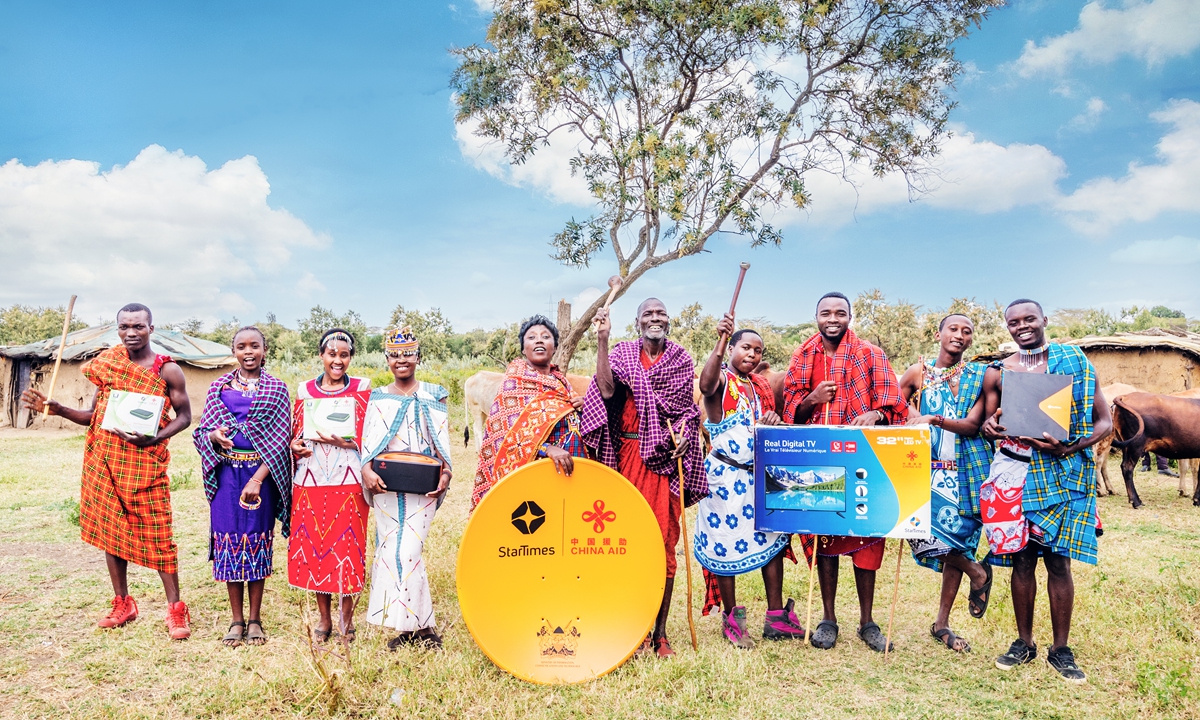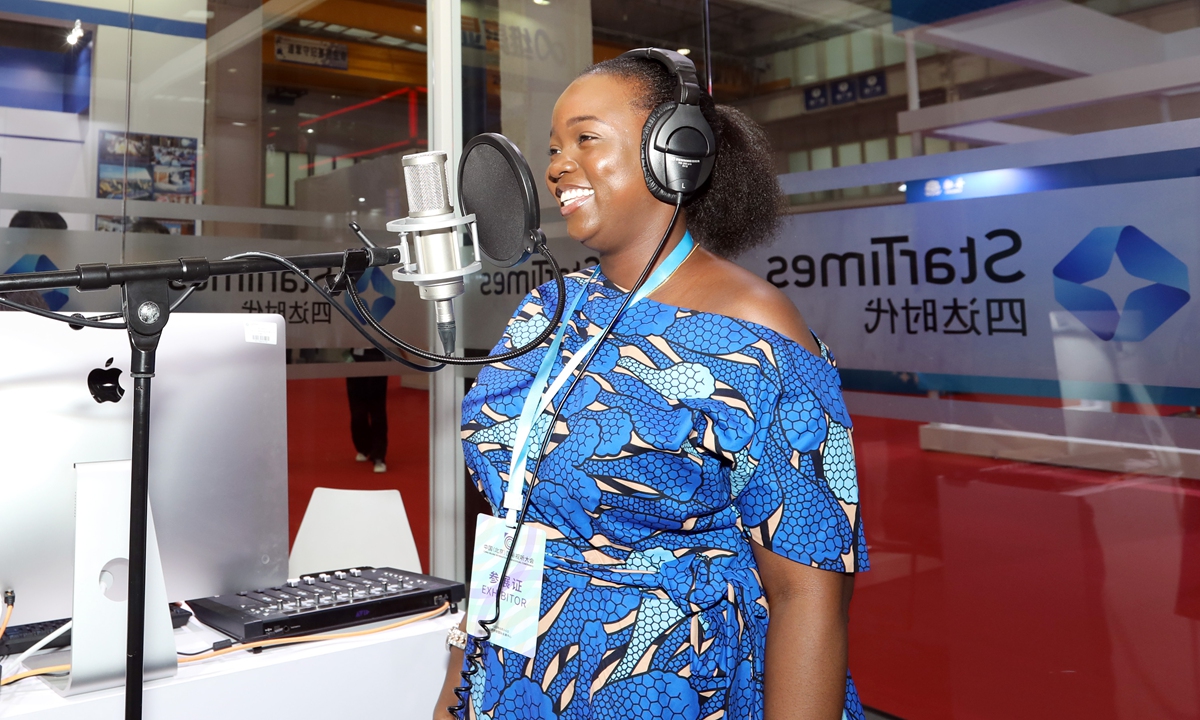Editor’s Note: Over a decade ago, two young African women from Gabon and Tanzania flew for over 20 hours and arrived in China, the country best known in Africa for its fast development and ancient history. They learnt Chinese and pursued higher education at Chinese universities, and built successful careers here. They told the Global Times that their lives in China have been full of surprises and their experiences here have contributed to transforming them into better people who are not only financially independent but also wiser under the influence of profound Chinese philosophy. They said they are now assuming the roles of “cultural ambassadors,” to act as emissaries between China and Africa to help promote fruitful people-to-people exchanges and win-win collaborations like the Belt and Road Initiative (BRI) and the promotion of poverty alleviation policies.
With her interest in studying international business, Nmanka Swai (better known as Nmanka) came to China. She never expected that her passion for dubbing and voice-over work would turn into her first job in China as a voice actor thanks to her language skillset as a native Kiswahili speaker.
With her “open mind to try different things,” Nmanka was hired as a voice actor by Chinese digital pay television firm StarTimes at the company headquarters in Beijing, which broadcasts content such as Chinese movies and TV series in Africa.
A model
Turning a hobby into a career is not easy. Nmanka said she has to synchronize her personality with her actor persona for greater realism. “You have to act differently. Some of them can be smooth, some of them can be harsh, and for some of them, you really have to be angry. You have to channel your anger,” she said.
Nothing But Thirty, Minning Town… Each time that a new Chinese TV drama is released on the television, Nmanka’s family and friends like guessing which character is voiced by her. Now, her followers on her social media account in Tanzania like her work as a voice actor on aired shows and movies. “They regard me as the model of an independent woman.”
Nmanka said the job has allowed her to better understand China’s history as well as the reason behind its rapid development. From her film and television voice acting career, she sees how Chinese culture affects, influences, and shapes Chinese people. And the Chinese saying “Do unto others as you would have done unto you” from Confucius has become her guiding motto in life and work.
After being a voice actor on Minning Town, a show encapsulating China’s poverty alleviation policy, Nmanka said she was amazed at how Chinese officials help in the development of villages and small cities. She was surprised to see how rural dwellings were transformed into modern apartments. She learnt that, compared with the culture in Tanzania in which married women usually leave the workforce, Chinese women, even in rural areas, are encouraged to be a part of the country’s workforce, which allows them to contribute financially to their families and help support national poverty alleviation efforts, which really touched her.

Joelle Zita Bolabola Photo: Courtesy of StarTimes
After graduating from a Chinese university, Joelle Zita Bolabola (better known as Bola) was hired as a TV host at StarTimes headquarters in Beijing, and now has since become a popular host in Africa, thanks to shows including China-Africa Express that talks about everything that Chinese enterprises have accomplished in Africa.
Bola told the Global Times that China-Africa Express is an important window to show what is being done thanks to the cooperation between China and Africa. “Now we can see who is responsible [for helping Africa] because if every time media sources are controlled by NBC, BBC, and CNN, we are never going to see what we have done,” she said.
According to Bola, a French company in Africa would often release maliciously slanderous content aimed at defaming China and spreading misinformation among Africans through its TV channels, a practice Bola finds irksome.
‘Delayed gratification’
Having been in China for 14 years, Bola said her changed life reflects China’s rapid development. She recalled that while in 2008 she needed to purchase a subway card to use the subway, and would need to purchase movie tickets at the cinema, she can now efficiently and effortlessly do both at the tap of a screen on her phone.
Moreover, the Chinese idea of “delayed gratification” which she has observed from Chinese people over the years has greatly influenced her mentality. Like many Chinese people, she started to save money and viewing every decision through a long term lens.
She described Chinese people as “wise.” “Wisdom is really important… When you are with Chinese people, they make you think about your own life, who you are, what you want to become and be smart and be wise because at the end of the day, this is the reality of life,” she said.
In 2018, Bola appeared in 2018 CCTV Spring Festival Gala and acted as a crewmember onboard the Mombasa Nairobi Standard Gauge Railway. This experience increased her confidence and public profile as over 1 billion people watched her on TV.
“My parents were surprised that I could speak Chinese so well… Even our national leaders could see that we are cooperating with China, and our children can be better educated and accumulate useful many skills learned in China,” she said.
Bola said she feels that she has the responsibility to be a cultural ambassador for China-Africa exchanges like promoting the BRI.
For Bola, the BRI is helping incentivize Africa to develop on its own terms rather than passively accepting “charity” from Western countries, and she particularly hopes the poverty alleviation policies in China will be emulated by Africa since such policies truly improve people’s livelihoods.

People in a Kenyan village pose for a photo with their new China-donated satellite TV. Photo: Courtesy of StarTimes












